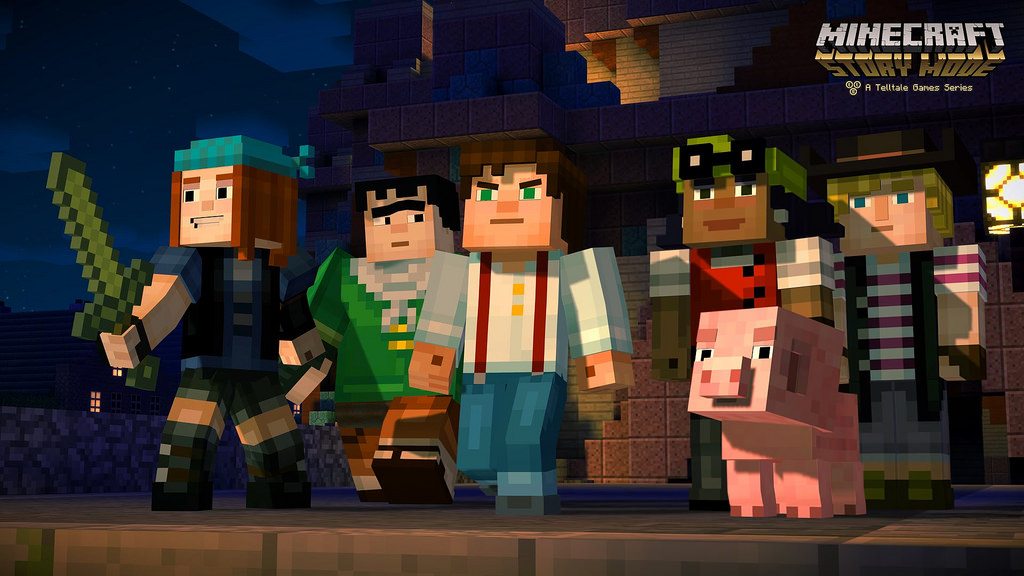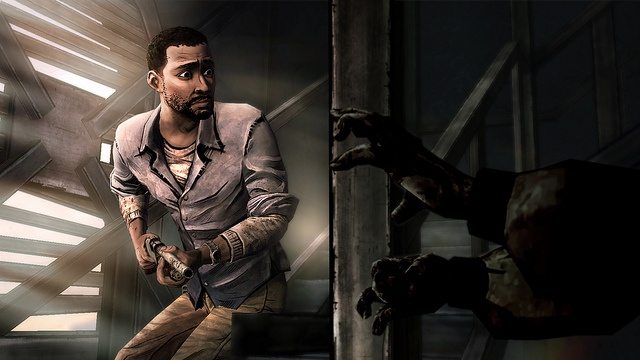Next time on Minecraft
[dropcap]C[/dropcap]ast your mind back to 2012, when unassuming game developer Telltale released graphic adventure title The Walking Dead to universal critical acclaim. The game was particularly revolutionary, sacrificing gameplay and puzzle-solving for character development and an engaging story – essentially becoming an interactive graphic novel. However, perhaps an overlooked reason for the game’s success was the fact that The Walking Dead was released over five separate episodes between April and November 2012. The success of this episodic game model sparked a new era of episodic gaming, which has included titles such as the recently concluded Life is Strange.
[divider]
Unsurprisingly, Telltale have stuck with their winning format. In the three years since The Walking Dead , they’ve churned out several more titles at an almost alarming rate, including Game of Thrones , Minecraft: Story Mode , The Wolf Among Us and The Walking Dead: Season 2.
There are certainly advantages to this for developers. Creating episodic games takes a lot less time, as they can focus on one section of the game at a time. Episodic games are also typically cheaper to produce, which means there’s also a lower risk investment. Finally, they can adapt later episodes to community feedback and the choices made by players in already released episodes.
The first episode of Life is Strange is available for just £3.99 on Steam, a significant bonus for those of us living on Tesco-brand noodles who don’t want to invest an entire £40 in a game
The consumer also benefits; cheaper production costs result in a cheaper price – the first episode of Life is Strange is available for just £3.99 on Steam, a significant bonus for those of us living on Tesco-brand noodles who don’t want to invest an entire £40 in a game. Episodic games also tend to be innovative and well-made, as the developers need to maintain a high level of quality to ensure their customers are kept interested in the game over several instalments. But as more and more of these episodic games flood the market, the flaws of this particular trend are becoming increasingly apparent.
The episodic gaming experience does come with some unfortunate side-effects. That £3.99 price tag seems alluring but the entire season ends up being a lot more expensive than you first thought. This might not seem like a major issue, but when you consider how many hours of entertainment you typically get in games such as The Walking Dead (about ten hours for the entire season), it’s hard not to feel short-changed.
There’s also the question of whether the episodic format suits story-based games. These games focus on the player making tricky moral choices that impact the story and character relationships in often unpredictable ways. For my initial playthrough of The Walking Dead Season One, I played the entire story over Christmas, so it was easy to keep track of the choices I made. It was a completely different experience when I played through Season Two as each episode came out. The entire game was released over a nine month period and I discovered it was tricky to remember the choices I had made in previous instalments. In fact, it was difficult to remember recent developments in the story or even the names of the supporting cast (all of whom inevitably die gruesomely in typical Walking Dead fashion anyway, so I guess it doesn’t matter too much).
The fact that new episodes of Telltale games include a recap on previous instalments does not lessen this problem in the slightest, as they’re often generic and cover the story in broad strokes. They don’t really recount your choices or intricate character relationships in great detail. What you’re left with is a muddled and disjointed story, which is particularly concerning for games that emphasise personal choices and character development.
Finally, there’s the threat of the episodic gaming model being abused by bigger gaming developers. Recent blockbuster titles, such as Star Wars Battlefront, only release a small portion of the single player or multiplayer mode upon release and then require gamers to buy more content over the following months – a trend which could have been influenced by the successful and cheap to produce episodic format.
More choice and innovation in how we play games is never a bad thing, but the success of Telltale Games means the rise of episodic video games will continue, for better or worse.
[divider_top]
 Want to write for Boar Games? Get in touch @boargames
Want to write for Boar Games? Get in touch @boargames



Comments